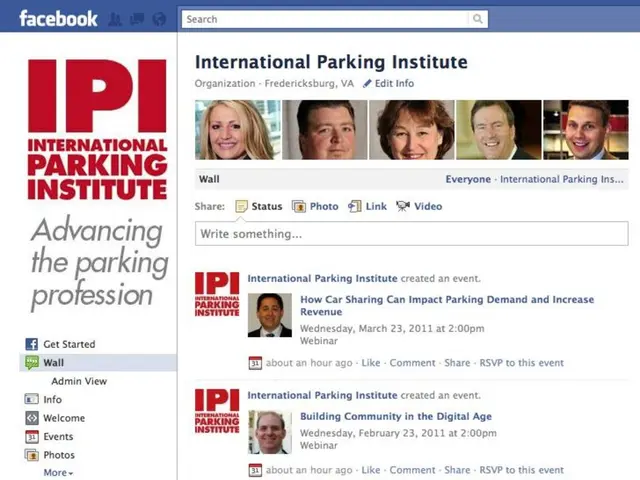Leaves of Absence Granted for Matrimonial, Funeral, and Health Emergencies - Leave for specific occasions, such as marriage, death, and illness, is the focus of this discussion.
Taking Some Time Off: Understanding Special Leave in Today's Workplace
- by Nina Jerzy
- 3 Min
When it comes to time away from work, most people think of paid vacation or sick leave. However, special leave is another option that can be just as important, whether it's for a joyful occasion or an unexpected emergency. Unlike statutory vacation days, special leave doesn't have a set limit on the number of days taken each year. But, it's essential to know the rules and regulations to ensure you get the time you need. Let's dive into the details!
Legally speaking, special leave is granted for specific family events and personal misfortunes. Till Bender from DGB Rechtsschutz GmbH explains, "Special leave is paid when it comes to legal requirements." However, collective bargaining agreements or employment contracts can adjust these provisions. When such guidelines are missing, the legal claim applies.
When Can You Take Special Leave?
According to Bender, the following scenarios for special leave have been derived from court rulings:
- your own wedding
- wedding of children or parents
- golden wedding anniversary of parents
- childbirth of the wife
- funerals within the immediate family
- doctor's appointments
- burglary
- fire
- uninsured traffic accidents
The duration of special leave depends on the occasion. A doctor's appointment may only require a few hours, while a family event usually means a full day off. The maximum per case is about seven to ten days, according to the trade union lawyer.
When it comes to caring for a sick child or a dependent relative, employees can take special leave before receiving child sickness benefit. Since full pay is provided during special leave, thiscan be a good option. Child sickness benefit is usually 90% of wages, capped at €120.75 per day (equivalent to a monthly wage of around €3000). Additionally, employees can claim a maximum of 15 days per year per parent, or 30 days for single parents, from their health insurance company.
The Care Time Act grants up to ten days of paid special leave to care for a dependent relative in an acute situation. Close relatives eligible for this leave include grandparents, parents, in-laws, step-parents, spouses, partners, siblings, their spouses, grandchildren, children, adopted or foster children (your own or of your partner).
Special leave can also be granted for some volunteer activities, educational leave, job applications, civic duties, or prayers. However, this depends on the individual case. It's always a good idea to inform your employer about any upcoming needs for special leave as soon as possible.
According to Bender, providing as much notice as possible allows your employer to arrange for a replacement if necessary. In cases of unexpected events like a fire or an accident, a phone call is usually sufficient.It's important to communicate with your employer to avoid misunderstandings.
For a doctor's appointment, simply informing the employer or presenting a practice appointment card is usually sufficient, according to Bender's experience. However, in case of skeptical bosses, a medical certificate or a letter from the doctor may be required. Supervisors may not demand that the employee find another doctor who offers appointments after work, emphasisizes the expert.
Proof may also be necessary if the employee has been absent due to an un blameable traffic accident. According to the expert, the employer has the right to request police records or correspondence with the insurance company. If the employee caused the accident, the already paid wages can be recovered. However, many companies do not go through this process.
Unlike sick leave, the length of special leave is not fundamentally limited. "The employer cannot say: You got married this year and your father passed away, so I won't grant you leave for your sister's wedding!" explains Bender.
Capital is a partner brand of the stern. Selected content can be viewed with your stern subscription. More from Capital can be found at www.stern.de/capital.
- Special Leave
- Employer
- Death
- Wedding
- Siblings * ** borealis1359**
- In specific family events or personal misfortunes, special leave at the workplace can provide a valuable option for individuals, offering time away from work regardless of whether it's for a joyous occasion or an unforeseen emergency.
- When employers are informed of a need for special leave, such as attending a doctor's appointment or handling family matters, it allows them to arrange a replacement if necessary, facilitatingWorkspace wellness and ensuring the smooth continuity of the workflow.
- The Care Time Act in specific situations allows for up to ten days of special leave to care for a dependent relative, and this can extend to grandparents, parents, step-parents, spouses, partners, siblings, and more, demonstrating the importance of maintaining family-health and relationships.
- Dealing with the mental health aspects of parenting can sometimes require special leave, providing employees with the time they need to address family dynamics and ensure their overall health and wellness.
- Lifestyle choices and civic obligations can sometimes necessitate special leave, emphasizing the need for flexible workplace-wellness policies that respect an individual's personal and professional commitments.








